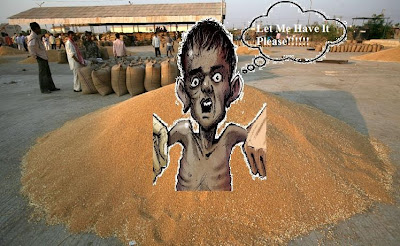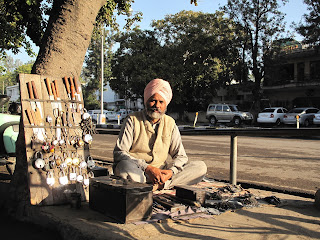What is this Food Security Bill???
Indian government will finally (hopefully) be able to pass the much awaited Food Security Bill in this monsoon session. It will be a 1.3 trillion rupee ($22 billion) welfare programme that would bring cheap food to hundreds of millions of poor people in India. This food security programme will be the largest in the world.
After this India will be in the pool of few countries in the world who guarantee majority of its population food grains. This will mark the beginning of the historic endeavour to give the nation's two-third population 5 kg of rice, wheat and coarse cereals per month per person at a fixed price of Rs. 3, Rs. 2, Re 1, respectively. Some of states like Tamil Nadu, Madhya Pradesh and Odisha already have their own food security programme.
Important features of the Food Security Bill are:
- Up to three-quarters of people in the rural areas and up to half of the urban population would get five kilograms of grains per month at subsidized prices (3 rupees per kilo for rice, 2 rupees per kilo for wheat and 1 rupee per kilo for coarse grains).
- Pregnant women and lactating mothers would receive a maternity benefit of at least 6,000 rupees.
- In a bid to give women more authority in running their households, the oldest adult woman in each house would be considered the head of that household for issue of ration card.
Well the bill would have a cascading inflationary effect on the life of a common person, especially the middle class. As Rs 1, 25,000 crore will be spent every year to supply 62 million tonnes of rice, wheat and cereals, it would raise the government's food subsidy burden from 0.8% to 1.2% of GDP per annum. More subsidy outgoing means the Union budget will have lesser funds available for the other projects like for infrastructural development which is highly required by India for higher growth and productivity.
In case of monsoon failure and low agriculture output in the country, India will have to import grains to meet the annual requirement of 62 million tons of grains which is an additional burden. As a large portion of the grains under the Food Security Bill would be procured from the domestic grain supply, there is a sure shot possibility of creating artificial scarcity in the open market leading to rise in food grains prices, again affecting the AAM AADMI.



Comments
Post a Comment